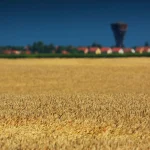ZAGREB, February 25, 2019 – There is a lot of potential to strengthen Croatia-Russia economic relations, particularly in the energy, tourism, pharmaceutical, construction and agriculture sectors, it was said on Monday at a meeting of the Business Council for Cooperation with the Russian Federation and a seminar on how to successfully do business on the Russian market, held at the Croatian Chamber of Commerce (HGK).
HGK president Luka Burilović underscored that due to sanctions between the EU and Russia, there were certain restrictions and obstacles to economic cooperation between the two countries and that it was necessary to focus on the sectors that were not covered by those sanctions. “Business has to be a bridge and channel of dialogue between countries, particularly in times of political tension,” he said.
He said possible areas of cooperation were energy and tourism as well as the chemical and pharmaceutical industries, mechanical engineering, shipbuilding, construction, infrastructure projects, wood and manufacturing industry, agriculture and food industries, textile industry and the like.
Burilović added that figures show that relations between the two countries have stabilised and that foreign trade is slowly growing. Burilović said that in 2012 trade between the two countries totalled more than 2 billion US dollars, however, due to the sanctions it has decreased. Now, its recovery is noticeable and the aim is to get back to the level of 2 billion US dollars as soon as possible and reach 3 billion.
Russia’s Ambassador to Croatia Anvar Azimov underscored that economic relations always had the role of an engine and that that was why they had to improve.
We have to learn to develop economic relations regardless of the sanctions, Azimov said, adding that Russia’s economy had suffered 50 billion euro in losses because of the sanctions and that the EU had lost up to 200 billion euro.
We want those relations to grow while Americans want them to decrease so that they can achieve more, he said and added that relations between Russia and Croatia had to be better given the great potential for cooperation.
He said that last year Croatia imported more than 2.5 billion cubic metres of Russian gas and added that gas deliveries would continue regardless of plans to build an LNG terminal on the island of Krk, which he sees as healthy competition.
Azimov said that Russians were prepared to invest in Croatia but were not always successful because it was not wanted by some strategic partners in Croatia, who, he said, believed that increasing Russia’s share in the energy sector was undesirable.
Croatia-Russia trade in the first eleven months of 2018 amounted to 600.6 million dollars, up 16.6% from the same period in 2017.
Croatian National Bank (HNB) data shows that in the period from 1993 to the end of 2017, Russia invested 416.9 million euro in Croatia, which makes it the 14th biggest foreign investor in Croatia. In the same period, Croatia’s investments in Russia amounted to 98.1 million euro.
Asked about the LNG terminal on Krk and if it could affect Croatia’s relations with Russia, Burilović said that Croatia had to have a backup solution that was competitive in price and ecologically acceptable.
“I see the construction of the LNG terminal primarily as an alternative to the only existing supply route and the market will show where we will supply gas from. Our primary concern are Croatia’s interests and the interests of consumers,” Burilović said.
More news on the relations between Croatia and Russia can be found in the Politics section.







